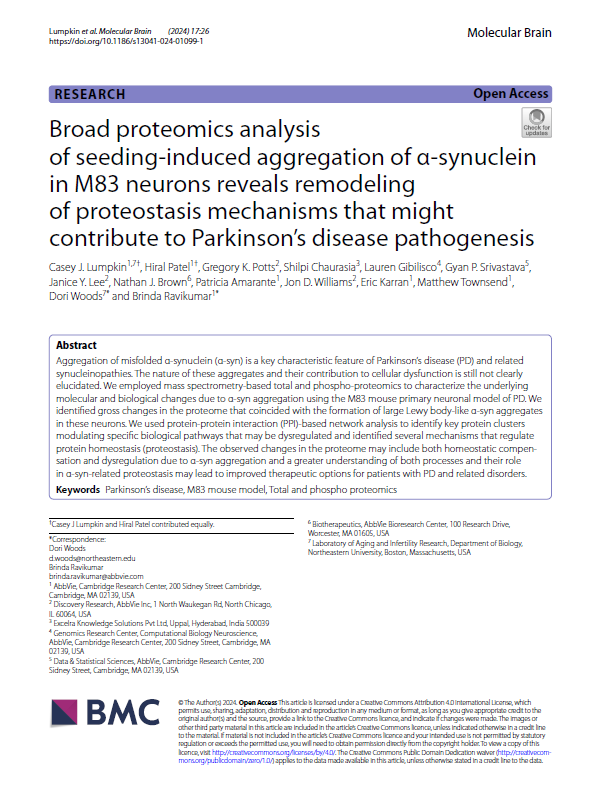This groundbreaking publication, featured in Molecular Brain, was co-authored by researchers, including Shilpi Chaurasia from Excelra Knowledge Solutions Pvt. Ltd., and sheds light on a critical aspect of Parkinson’s disease (PD) progression: α-synuclein aggregation and its impact on cellular health.
Here’s what you’ll discover:
- The Link Between α-synuclein and Cellular Dysfunction: The study explores how the aggregation of a protein called α-synuclein, a hallmark of PD, disrupts vital processes within neurons (brain cells).
- A Deep Dive into Cellular Proteomics: Researchers employed advanced mass spectrometry techniques for total and phospho-proteomics to analyze protein changes in a well-established mouse model of PD. This analysis reveals “gross changes” in the cellular protein makeup linked to α-synuclein aggregation.
- Unveiling Proteostasis Mechanisms: The publication delves into the body’s protein management system (proteostasis) and how it responds to α-synuclein misfolding. This includes identifying potential mechanisms that could be dysregulated in PD.
- Hope for New Treatments: By understanding how α-synuclein disrupts proteostasis, researchers open doors for the development of novel therapeutic strategies for PD and related synucleinopathies.
Download the full publication to gain a comprehensive understanding of this exciting research and its potential implications for future PD treatments!
Note: No part of this report may be reproduced or distributed without prior written permission.


